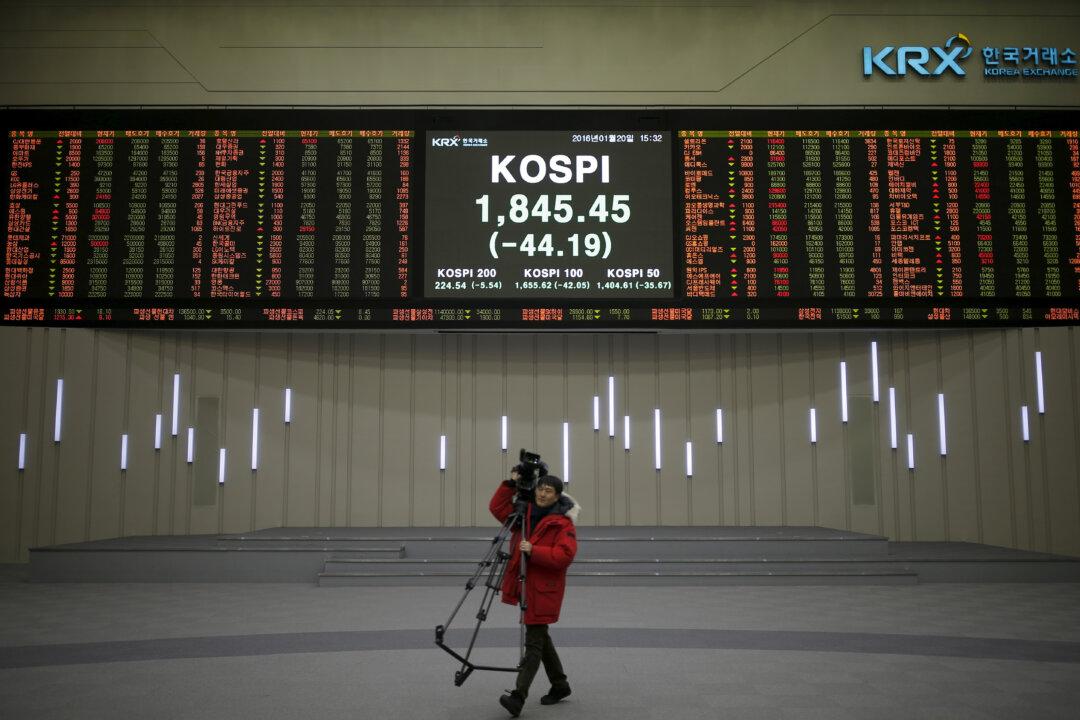SEOUL—South Korea from Monday will re-impose a ban on short-selling shares at least until June to promote a “level playing field” for retail and institutional investors, financial authorities said on Sunday.
The ban was lifted in May 2021 for trades involving the shares of companies with large market capitalization included in the KOSPI200 and KOSDAQ150 share price indices. The restriction has remained in place for most other stocks.





